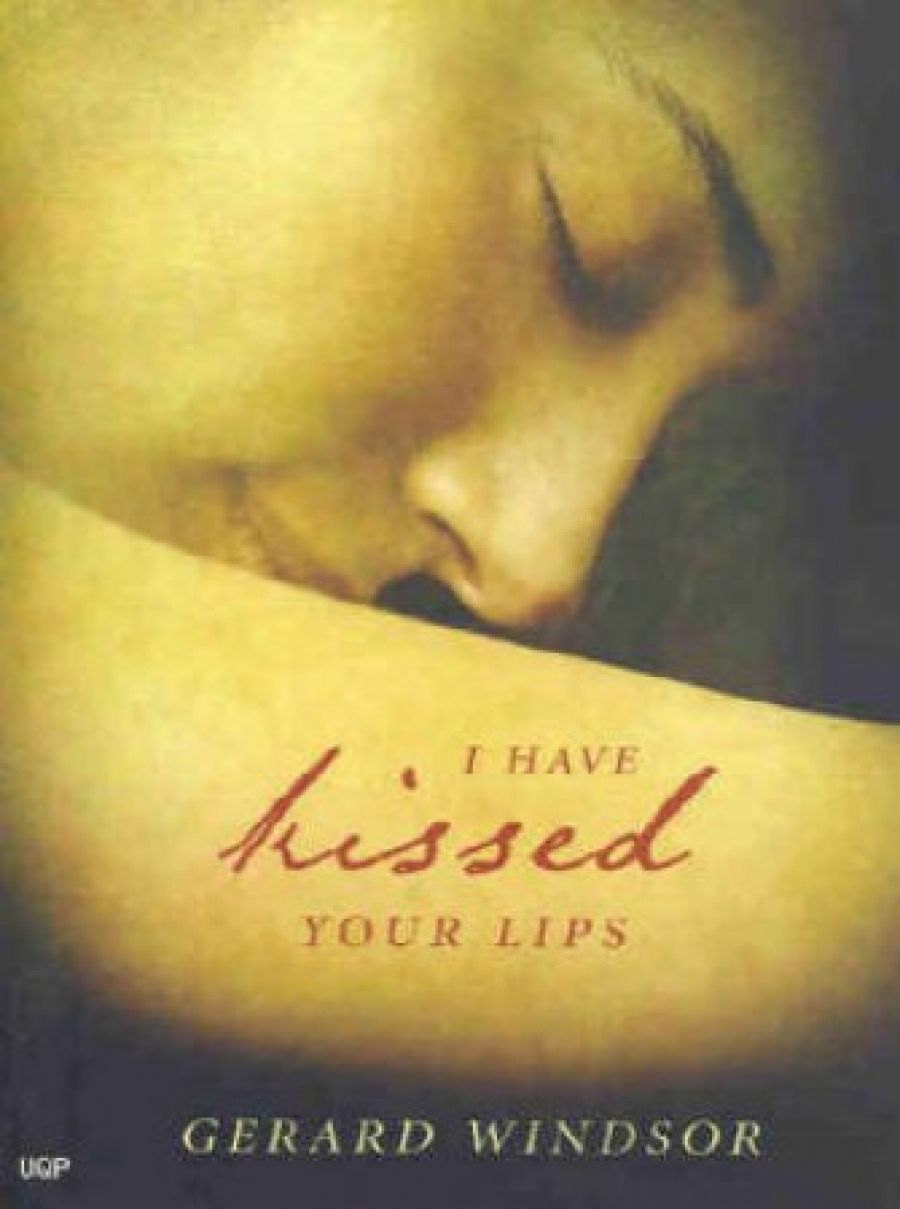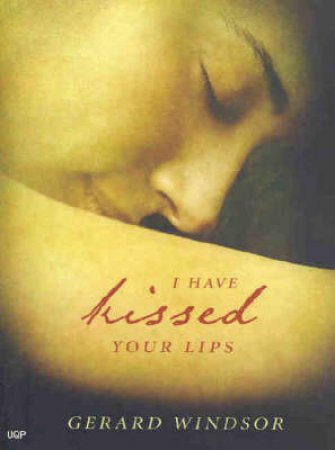
- Free Article: No
- Contents Category: Fiction
- Review Article: Yes
- Article Title: Rites of Taboo
- Online Only: No
- Custom Highlight Text:
Gerard Windsor has worn various literary hats – as reviewer, biographer and literary commentator – and in one of them does he shrink from controversy. Indeed, this provocative identity is mentioned as a matter of pride in various publicity blurbs. The history of his old school that he was commissioned to write was deemed too negative and was never printed, and he has come under fire for views expressed at both Adelaide and Sydney writers’ festivals. So it was unsurprising that with his latest novel, he has also chosen a controversial subject matter: the sexual life of a Catholic priest.
- Book 1 Title: I Have Kissed Your Lips
- Book 1 Biblio: UQP, $24.95 pb, 290 pp
- Book 1 Cover Small (400 x 600):

- Book 1 Cover (800 x 1200):

This storyline makes the literary game of determining how much of a novel is autobiographical all the more tempting. Windsor was not only educated by the Jesuits but became one himself at the age of eighteen, and he has proved ready to mine his past life with his series of memoirs, I’Il Just Tell You This (1999), Heaven Where the Bachelors Sit (1996) and I Asked Cathleen to Dance (1999). Assumptions of autobiographical content are often incorrect, of course, but the mere fact that parallels can be drawn between Windsor – who trained as a priest – and his main character – a young Catholic priest – gives an extra edge to the end of the story, which contains one of the few things still able to generate shock in our culture.
Michael English begins his professional life as a priest in a small country town. An older woman approaches him after Mass one Sunday, and the hints and awkwardness of their conversation signify a connection that turns into an affair. Many taboos are broken: he is a Catholic priest; she is married; and she is significantly older than he. Their connection is passionate and leads to marriage, but it also brings tragedy.
The story is told in a fragmentary fashion, shuttling between various decades of the twentieth century. The novel opens with a fraught moment between Michael and his mother, indicating his ongoing obsession with her, which is Oedipal in more ways than one. Passages from different stages in Michael’s life reveal the intense, complicated relationship between these two people: ‘He knew he was her sole joy, the sole conduit to her of any elixir of life.’ Burdened with such pressure, the relationship of course malfunctions.
Mother-son relations are also weighted with much thematic significance. The novel implies that gaps and problems in these relationships motivate different characters’ outrageous behaviour. Certainly, Michael’s mother’s intense focus on him seems to lead to his self-obsession and his tendency to distance himself from the harmful results of his actions. And the emotions of pregnancy and childbirth are central to many of the female characters’ identities.
The description of Michael’s life is interspersed with the story of a woman who suffers various forms of abuse. The cruelty of her brother towards her childhood doll is made vivid in a vignette that resonates with the suggestion of a more thoroughly frightening existence. AS a teenager, she suffers at the hands of a man who is not only a Catholic bishop but also her uncle. The two plot lines eventually converge, explosively.
This is a forceful novel in ways other than its inflammatory subject matter. Windsor unhesitatingly explore all the emotional darkness inevitable in the events he depicts, a practice that can make for exhilarating, if exhausting, reading. rating, if exhausting, reading. Betrayal is heaped upon betrayal in a way that seems depressingly plausible. The novel constructs layers of disturbance, anxiety and heightened emotion in its focus on the waywardness of the psyche. Windsor also displays a persistent interest in difficulties of the body: physical degeneration, lack of bodily control, sexual problems and desires. Michael is largely unsympathetic in his harmful self-obsession, yet this makes the understanding we eventually feel for him all the more powerful. More disturbing is the space given to the motivations of abusive characters; when this succeeds in generating even a slight level of understanding or sympathy, the next readerly reaction is discomfort.
On the other hand, the Lawrentian analysis of the emotional significance of minute acts and speeches sits on a fine line between profundity and tedium, and more than once tends to the latter. This narratorial interest in psychological minutiae seems to reflect Michael’s own narcissistic focus on himself, which is perhaps what makes it irritating. And when the mundane is pressured to yield meaning, the result can be unconvincing, as well as slowing the action still further in a novel that is far from plot-driven. This novel’s idiosyncrasies will understandably drive away some readers, but those who persevere will be rewarded.


Comments powered by CComment